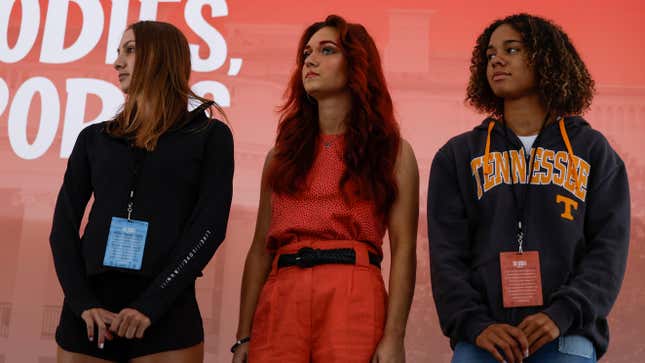Cis Women Are Trying to Weaponize Title IX Against Trans Athletes
Four former student-athletes from Connecticut want to block all trans girls from competing in high school girls' sports.
EntertainmentEntertainment

In the ongoing war against trans youth—which is fueled entirely by hateful conservative moral panic—yet another battle is being waged against trans athletes’ right to participate in high school sports. This time, however, rather than trans athletes seeking to be included, a group of cis women from Connecticut are convinced that competing against trans girls deprived them of equal opportunities.
Four cisgender plaintiffs—Selina Soule, Chelsea Mitchell, Ashley Nicoletti and Alanna Smith, all of whom have already graduated—argue that Terry Miller and Andraya Yearwood “deprived” them of trophies, wins, and public recognition in high school track competitions, a federal appellate court heard in arguments on Thursday. The suit revolves around the role of Title IX, the law that prohibits educational institutions that receive federal funding from discriminating against students on the basis of sex. While Title IX is generally used as a tool to argue for equal funding and opportunities for women’s sports—which have historically received far less in scholarships and athletic budgets than their male counterparts—this particular case seeks to use Title IX as a weapon against trans girls.
-

-

-

-

-

-

-

-

-

-

-

-

-

-

-

-

-

-

-

-

-

-

-

-

-

-

-

-

-

-

-

-

-

-

-

-

-

-

-

-








































